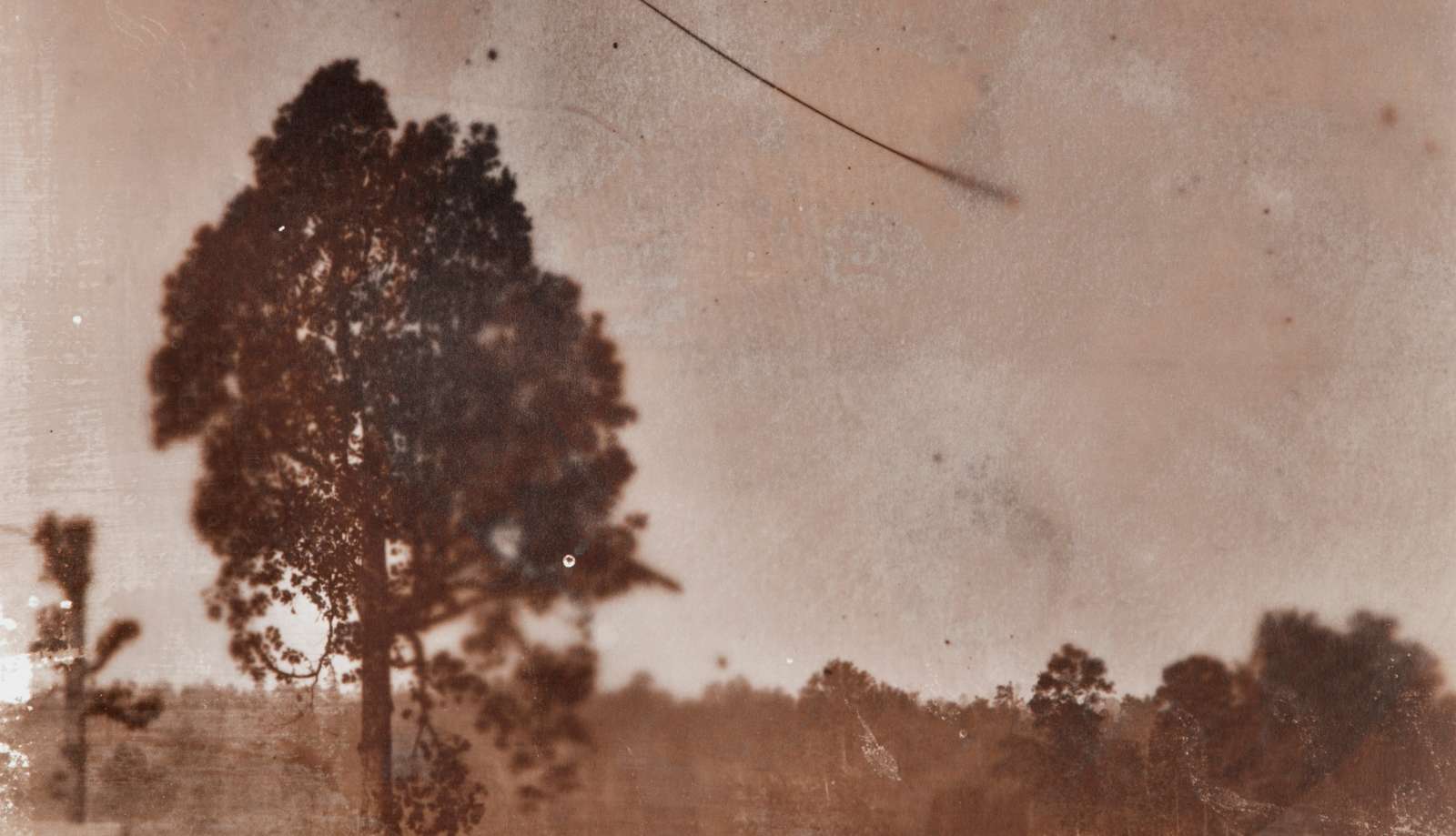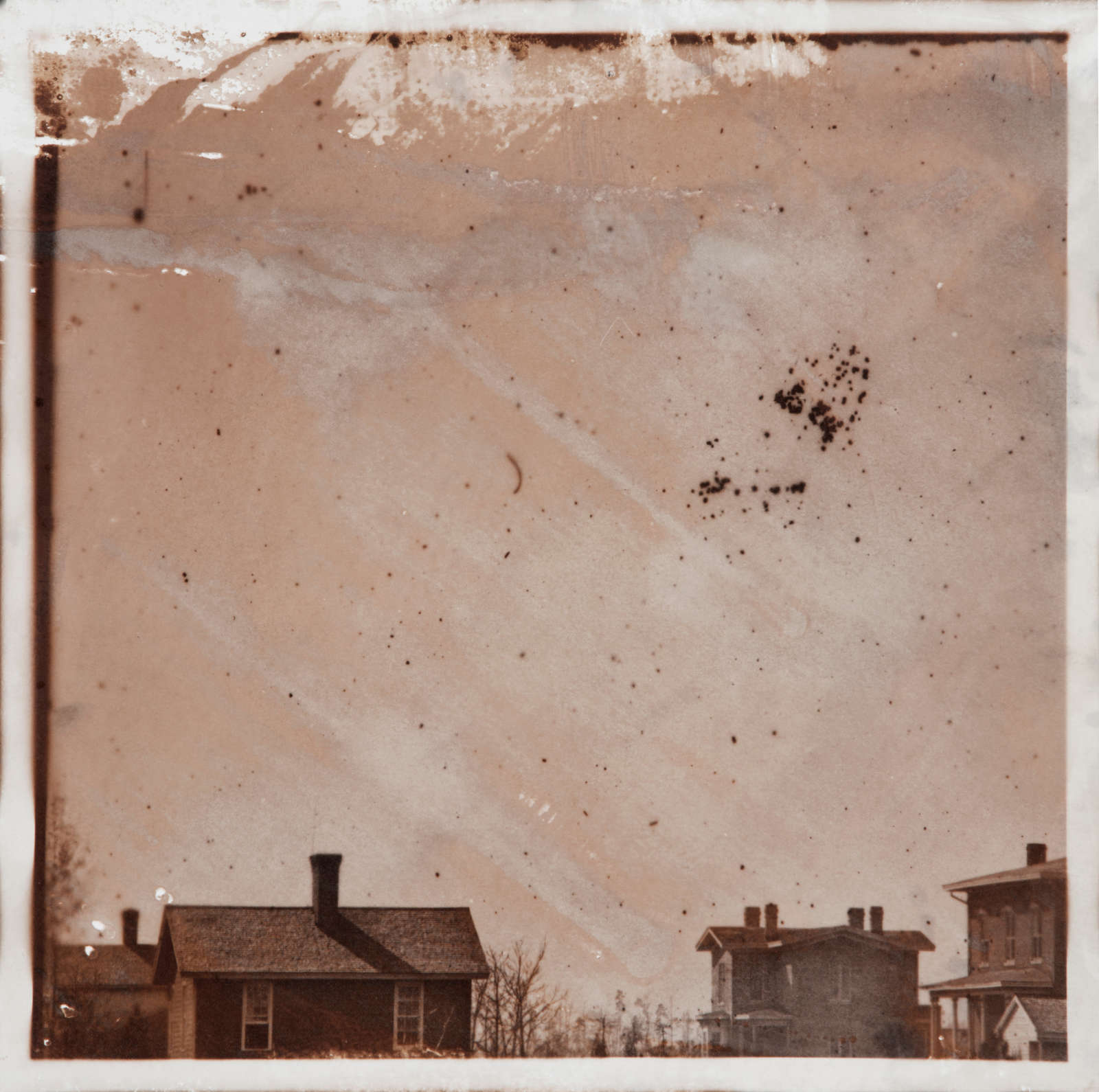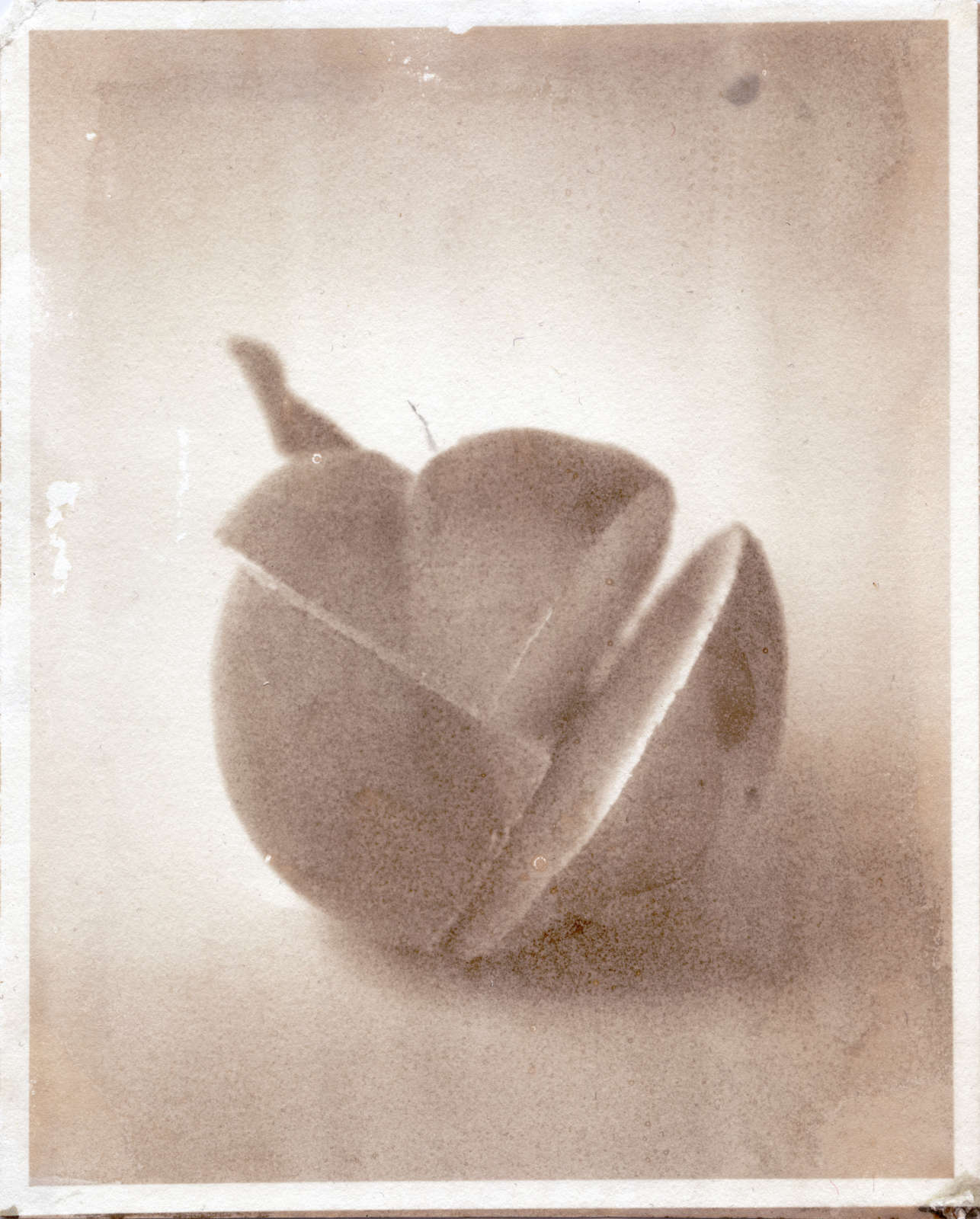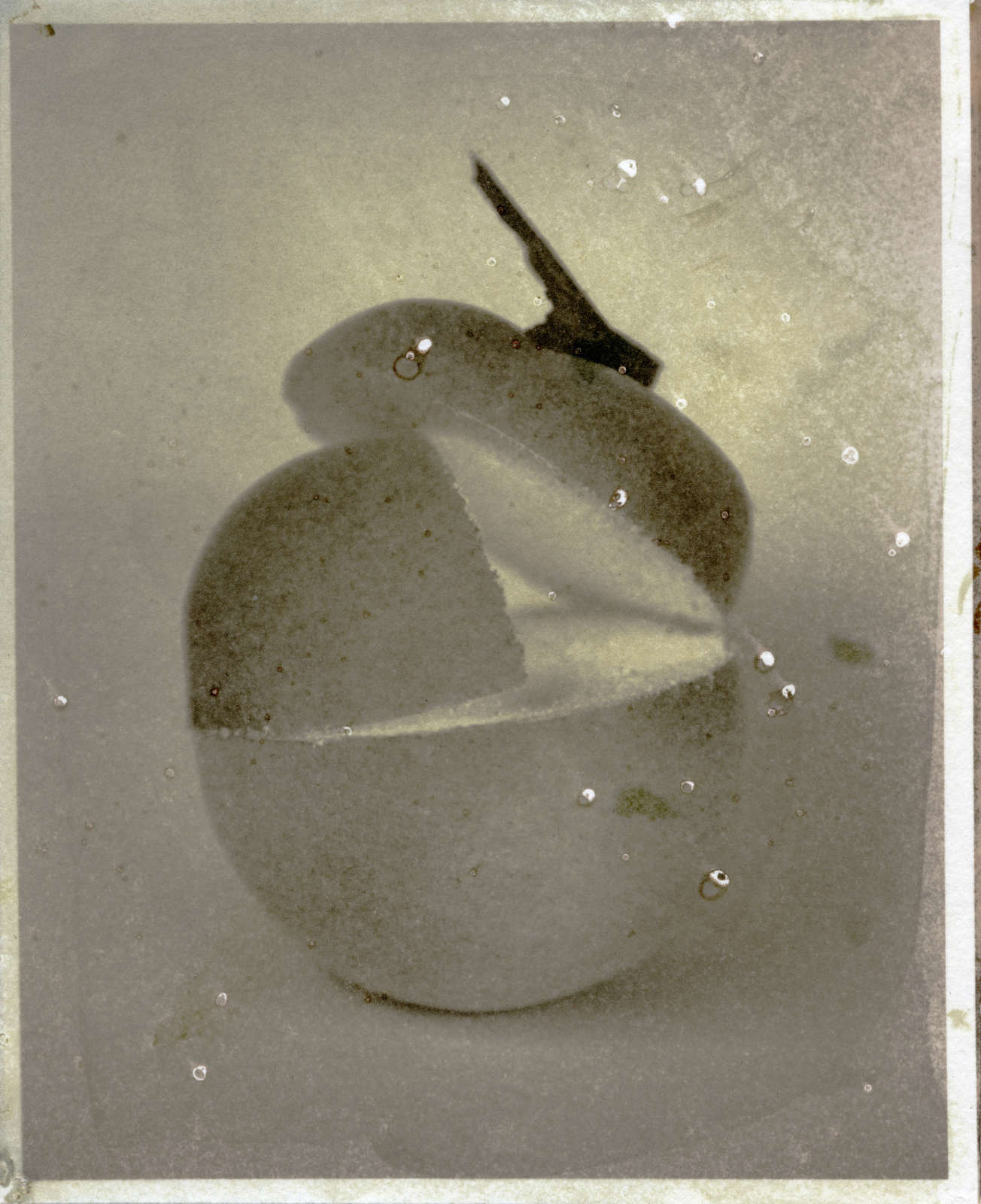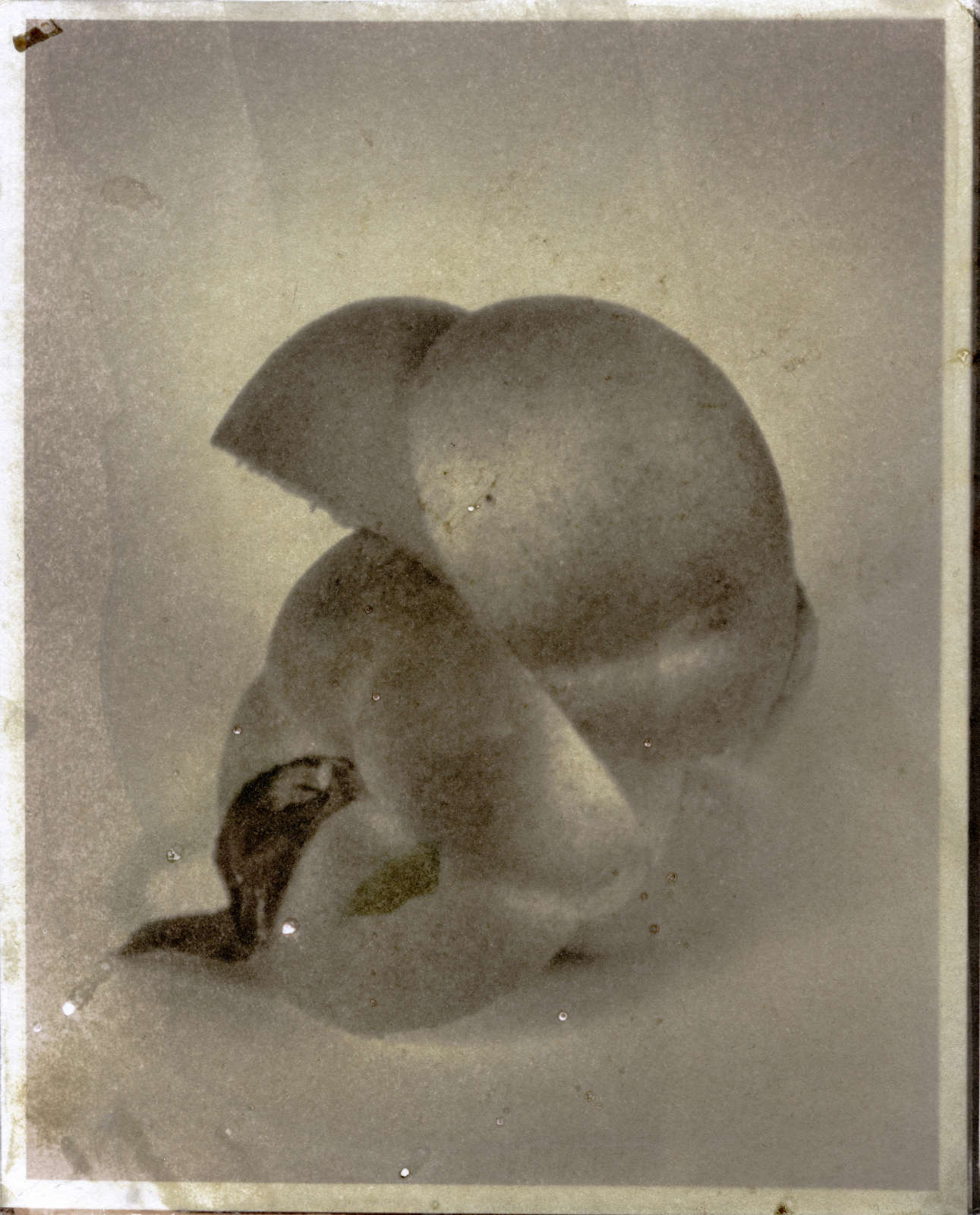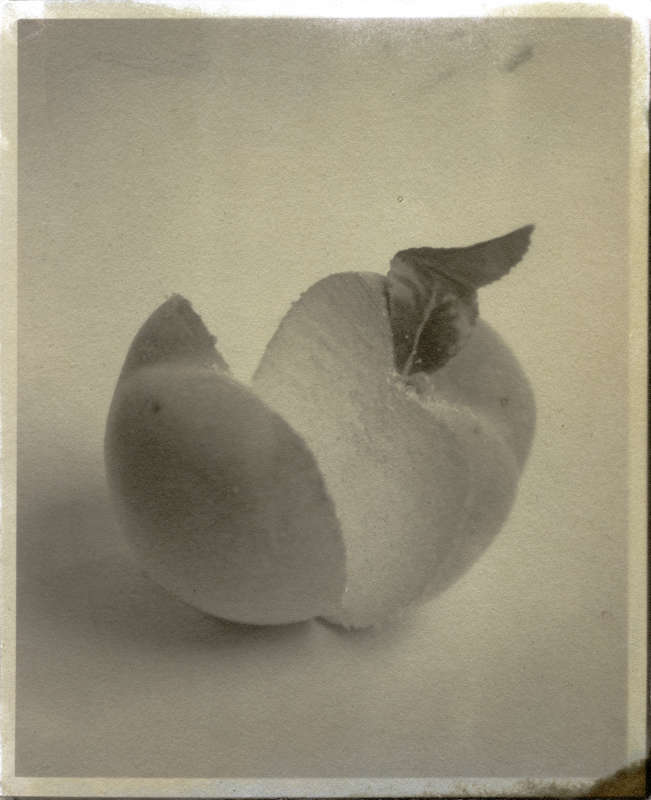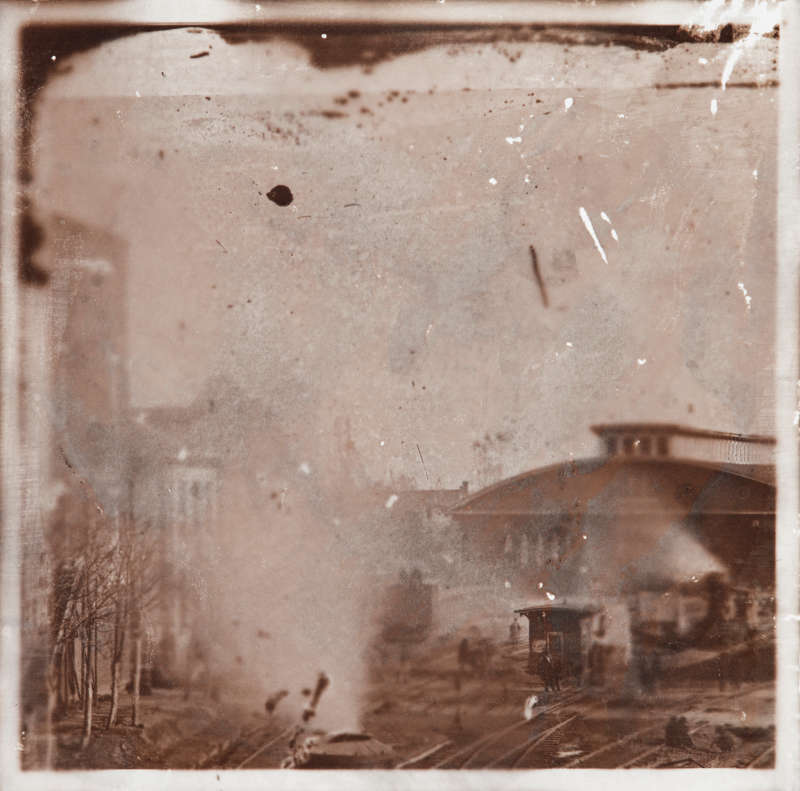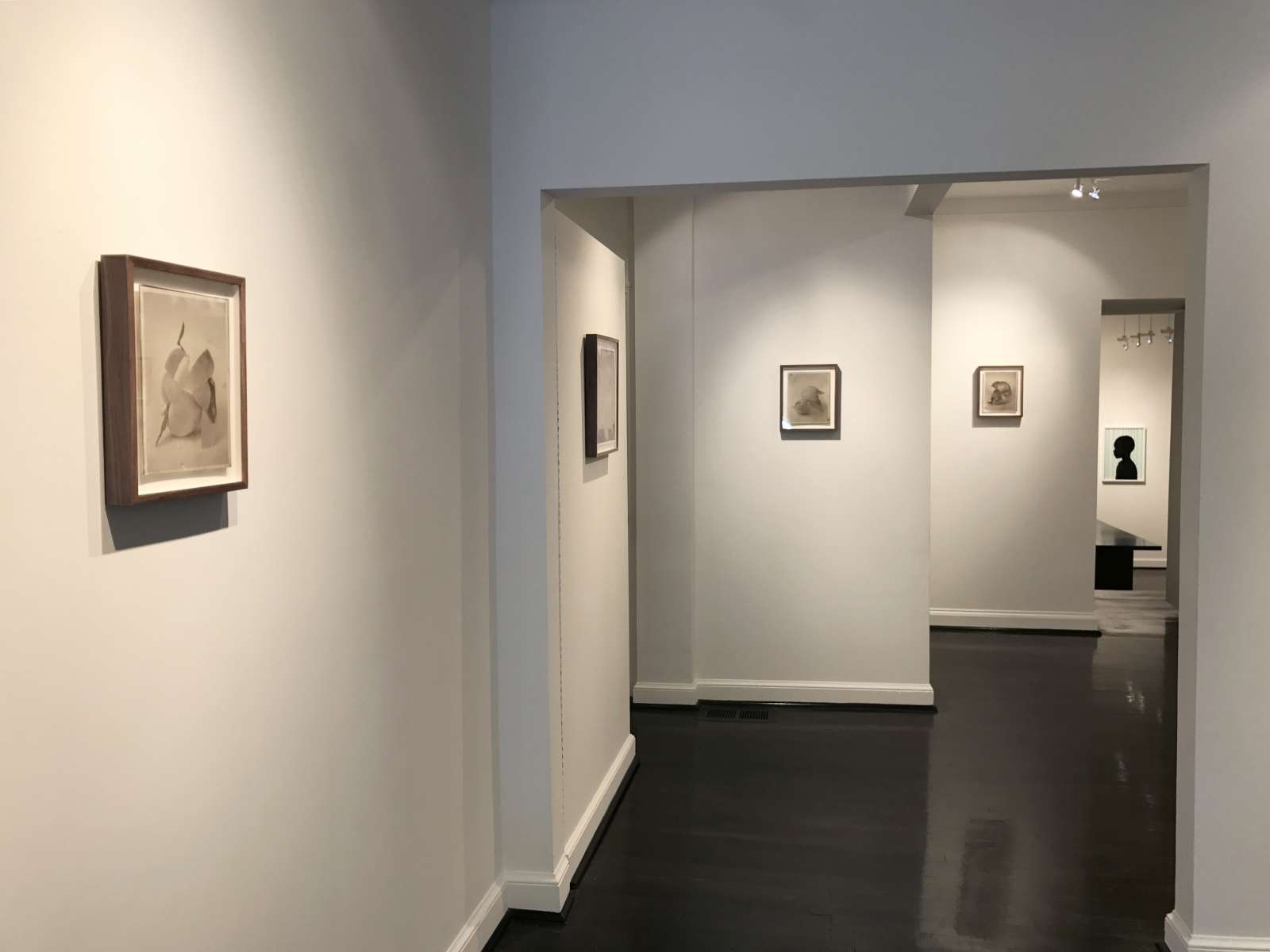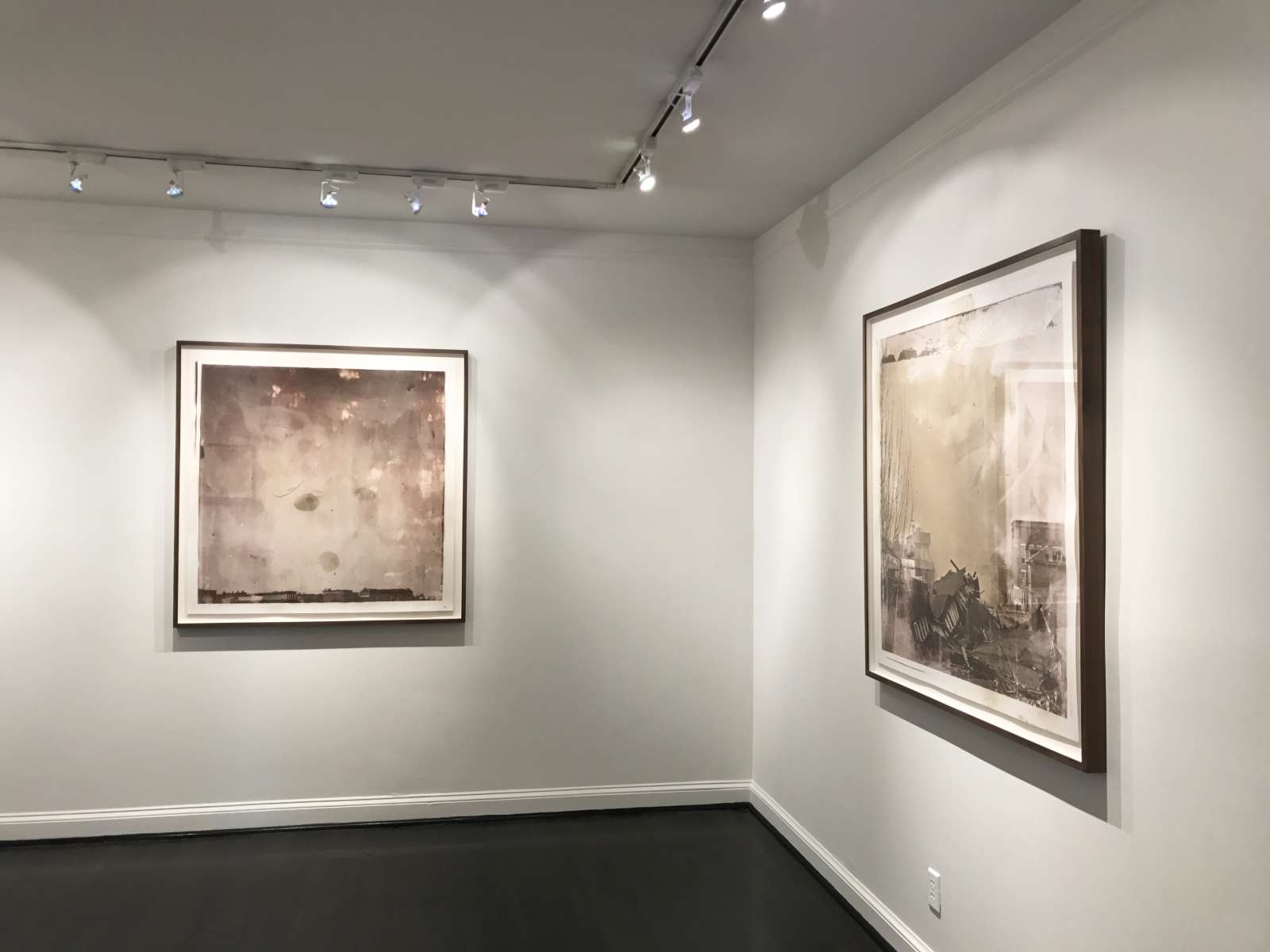Matthew Brandt: 1864
Overview
ATLANTA. April 5, 2017. Jackson Fine Art is proud to present new exhibitions from Matthew Brandt and Ruud van Empel, two contemporary artists whose works challenge preconceptions of traditional photography. Brandt is known for employing early processes that celebrate the material essence of analog photography, while van Empel’s digital composites result from the meticulous assemblage of hundreds of the artist’s own source photographs into one photorealistic image. On the evening of Friday, April 28th, from 6-8pm, we will host an opening reception with both artists in attendance. On Saturday, April 29th at 3:30pm, Ruud van Empel will give an artist’s talk at the gallery, followed by questions and a book signing. At 2pm, Matthew Brandt will speak at the Hill Auditorium for a program presented in cooperation with the High Museum. In Matthew Brandt’s work, the artist conflates subject and material, incorporating physical elements from the sources he’s depicting to create unique compositions that are technically inventive and conceptually sly. For Lakes and Reservoirs, his landscapes were bathed in the water of their subjects; 2014’s Dust featured reproductions of historical photographs of demolished structures, rendered in pigments borne of debris collected from those buildings’ contemporary sites. For 1864, his first exhibition at Jackson Fine Art, Brandt again turns to the archives, reinterpreting George N. Barnard’s photographs of a post-Sherman Atlanta by making images of a shattered city into peach pie. Brandt began working on 1864 in early 2017, informed by a February visit to Atlanta (his first) and a fascination with the online catalog of the Atlanta Journal Constitution. Fortifying the foundational ingredients of the 19th-century albumen print — egg whites, silver nitrate, and salt — with peaches, sugar, flour, cinnamon, and butter, Brandt plays with external assumptions about the South, at the same time evincing a complex understanding of the history his project excavates. Georgia’s reputation as the Peach State, now tenuous, calcified in the three decades following the Civil War. Brandt’s large scale photographs of the ruins of Union Depot, once situated between Pryor Street and Central Avenue, or Confederate Peachtree Street (then Whitehall), compress time, creating a symbolic conversation at turns funny and reverent, and loaded with unexpected associations. 1864’s landscapes will be exhibited alongside a series of still life peaches. These photographs were processed with the same recipe (see below) as the Barnard images, but composed using Styrofoam fruit made in China and purchased from eBay, in a gesture that situates the project squarely in the present.
Works
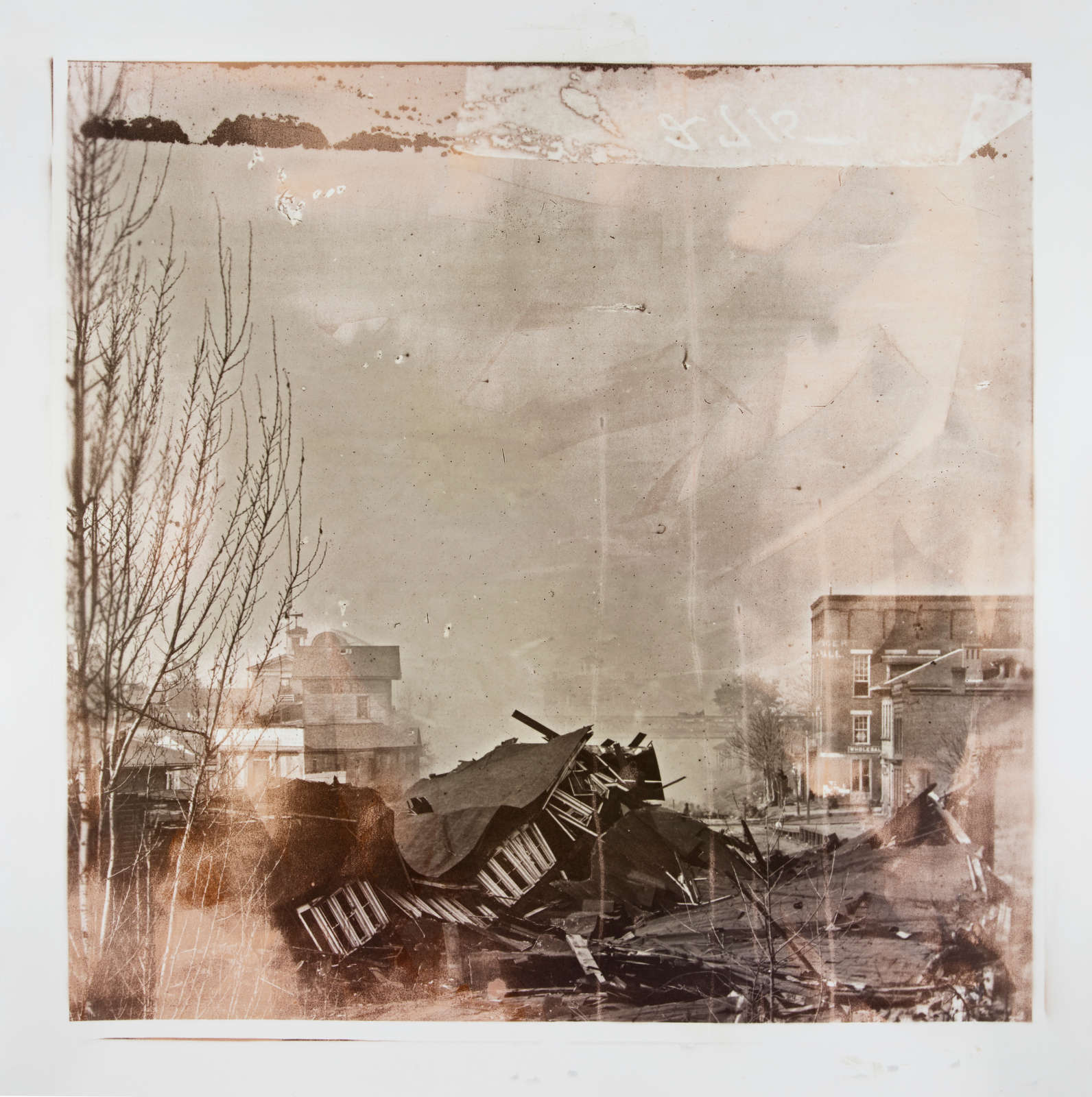 1864, 02225a2, 2017
1864, 02225a2, 2017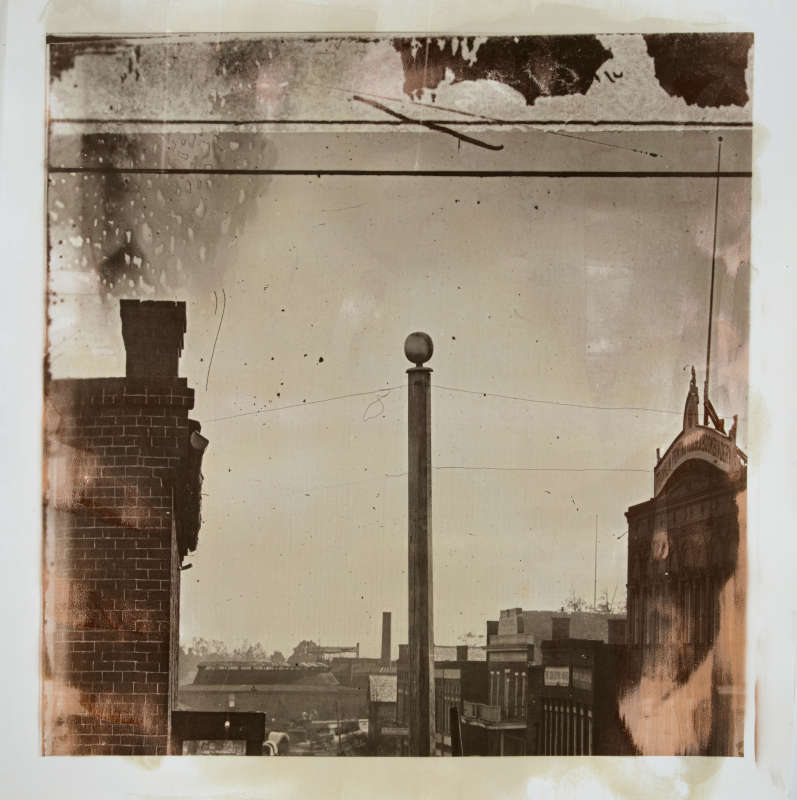 Matthew Brandt, 1864, 03355a1, 2017
Matthew Brandt, 1864, 03355a1, 2017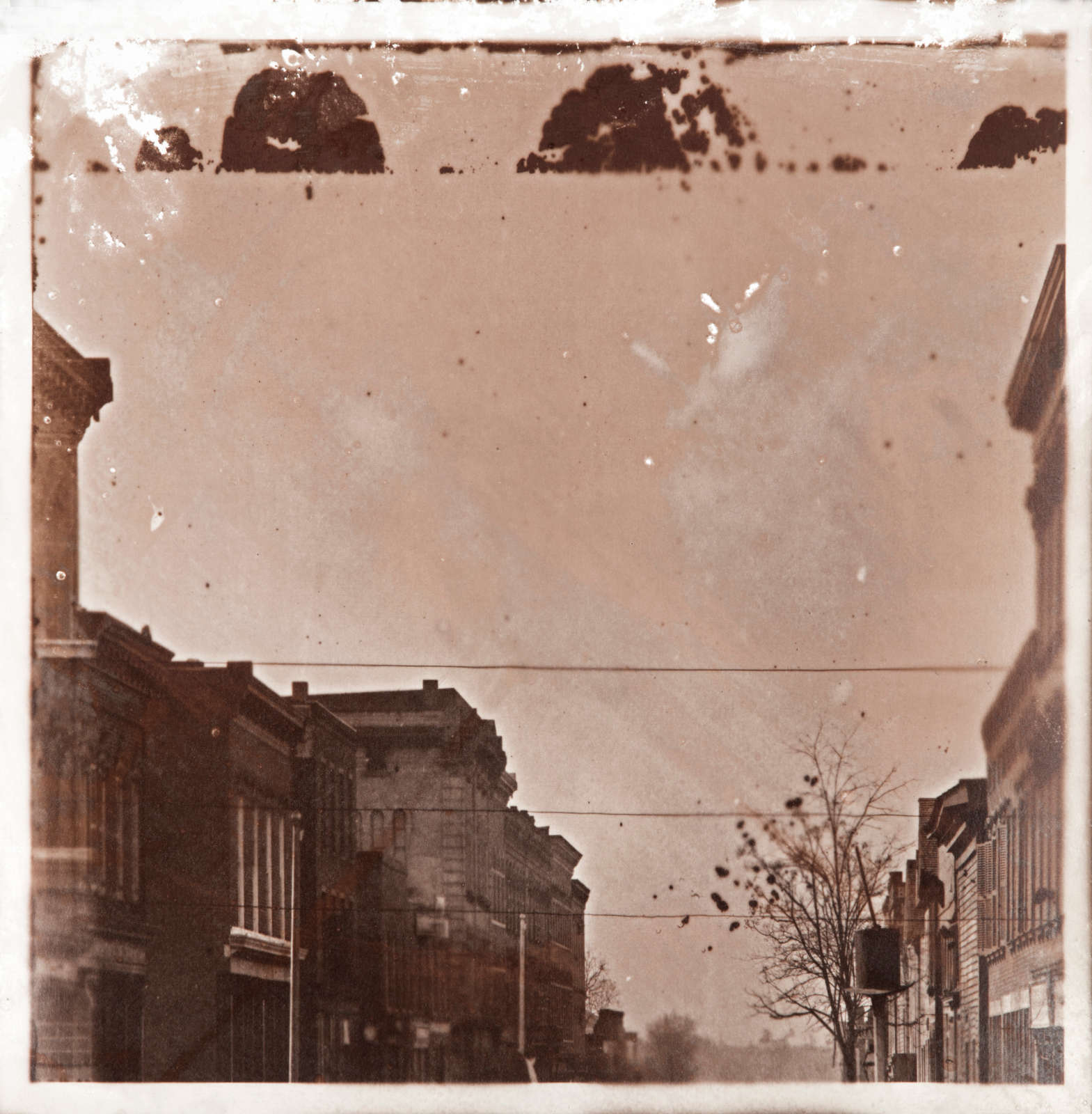 1864, 03468aS2, 2017
1864, 03468aS2, 2017![Matthew Brandt, 1864, 03475a2, 2017]() Matthew Brandt, 1864, 03475a2, 2017
Matthew Brandt, 1864, 03475a2, 2017![1864, 03480aS1, 2017]() 1864, 03480aS1, 2017
1864, 03480aS1, 2017![Peaches, 10B, 2017]() Peaches, 10B, 2017
Peaches, 10B, 2017![Peaches, 11B, 2017]() Peaches, 11B, 2017
Peaches, 11B, 2017![Peaches, 12B, 2017]() Peaches, 12B, 2017
Peaches, 12B, 2017![Peaches, 3B, 2017]() Peaches, 3B, 2017
Peaches, 3B, 2017![Peaches, 5B, 2017]() Peaches, 5B, 2017
Peaches, 5B, 2017![Peaches, 6B, 2017]() Peaches, 6B, 2017
Peaches, 6B, 2017![Peaches, 7B, 2017]() Peaches, 7B, 2017
Peaches, 7B, 2017![Peaches, 9B, 2017]() Peaches, 9B, 2017
Peaches, 9B, 2017![Matthew Brandt, Peaches, 8B, 2017]() Matthew Brandt, Peaches, 8B, 2017
Matthew Brandt, Peaches, 8B, 2017![Matthew Brandt, JFA window 4, 2017]() Matthew Brandt, JFA window 4, 2017
Matthew Brandt, JFA window 4, 2017![Matthew Brandt, 1864, 03460aS1, 2017]() Matthew Brandt, 1864, 03460aS1, 2017
Matthew Brandt, 1864, 03460aS1, 2017![Matthew Brandt, 1864, 03408aS1, 2017]() Matthew Brandt, 1864, 03408aS1, 2017
Matthew Brandt, 1864, 03408aS1, 2017![Matthew Brandt, 1864, 02225aS1, 2017]() Matthew Brandt, 1864, 02225aS1, 2017
Matthew Brandt, 1864, 02225aS1, 2017![Matthew Brandt, 1864, 03480a2, 2017]() Matthew Brandt, 1864, 03480a2, 2017
Matthew Brandt, 1864, 03480a2, 2017![Matthew Brandt, 1864, 03355a4, 2017]() Matthew Brandt, 1864, 03355a4, 2017
Matthew Brandt, 1864, 03355a4, 2017![Matthew Brandt, Peaches, 2B, 2017]() Matthew Brandt, Peaches, 2B, 2017
Matthew Brandt, Peaches, 2B, 2017![Matthew Brandt, Peaches, 1B, 2017]() Matthew Brandt, Peaches, 1B, 2017
Matthew Brandt, Peaches, 1B, 2017![Matthew Brandt, Peaches, 4B, 2017]() Matthew Brandt, Peaches, 4B, 2017
Matthew Brandt, Peaches, 4B, 2017![]()
![]()
![]()
![]()
![]()
![]()
![]()
